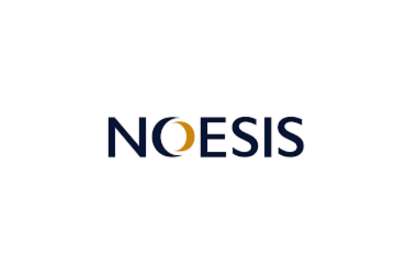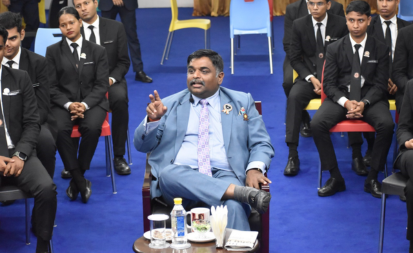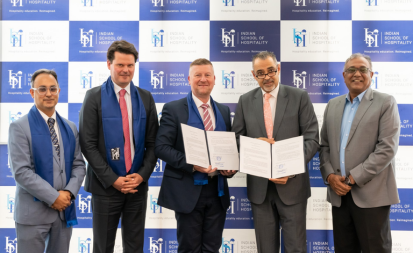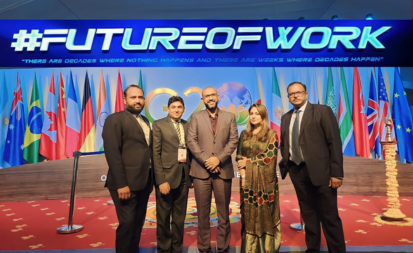Smart Technology – With an eye on Profitability
by Manav Thadani May 18, 2022 Hotel Development Those who know me know I have a love-hate relationship with technology. I love data analytics but don’t care for new gadgets. Every time an upgrade is
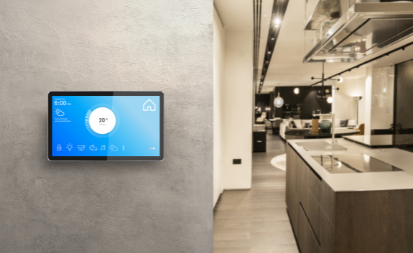
by Manav Thadani May 18, 2022 Hotel Development
Those who know me know I have a love-hate relationship with technology. I love data analytics but don’t care for new gadgets. Every time an upgrade is required, I’m actively on the lookout to see who can help me get it done. Call me “technophobic” if you please, but it gives me great comfort to know there are others out there like me. Yet I have, over the years, come to respect that technology is immensely valuable in a variety of ways and, if used properly, can help generate profitability and efficiency perhaps not otherwise attainable.
In my opinion, the hospitality industry, in general, uses technology neither adequately nor optimally, and in saying so I mean for the benefit of the hotel asset and its profitability. In comparison, airlines have used technology far more efficiently to drive up profitability. Many large hotel brands have fallen into the trap of new room tech upgrades: a mirror that doubles up as a television screen; Alexa controlling music and announcing the weather; and increasingly complicated TV remotes, iPads and central panels that seem to control everything from how you order room service to checking out. Many of these upgrades are taking place at the front of the house, in guest-facing spaces, whereas the greatest gain lies in investing in technology in back end operations. My advice to key decision-makers is simple – “Stop wasting money. Focus on profits. … ‘Fancy’ hotels are not better hotels. … Buy smart technology.”
Let me delve deeper into each of the above. Starting with the first one – “Stop wasting money”.
Hoteliering is actually a very simple business – basically you are selling only two things — sleep and a shower. In fact, history tells us that this is the second-oldest business on Earth, and that we have been selling sleep and a shower for 2,000 years. However, there are enough owners who prefer an ROE over an ROI and where the ROE stands for Return on Ego. As an experienced owner, I have seen an asset like Courtyard by Marriott in Bangalore outperform many of the brands run by the same company in better city-centre locations and in fact give a serious run for its money to both the JW Marriott and Ritz Carlton (in terms of Rev Par, at least). Hospitality Development heads go to great lengths to talk about the importance of design and the nuances of building a proper hotel, however, there is very little discussion of profitability. Currently, it’s always about getting on board the approved architect or designer, or why the room size needs to be larger, or the right cosy corner in all rooms. Brand standards have also dictated the number of restaurants, sometimes requiring two in places where perhaps even running one is a challenge. As a consulting advisor, I have always said that we should look at the highest and best use of the potential hotel product in each location, and it is this objective that must drive positioning and design decisions. Of course, if you are looking for ROE, then we can put that hat on as well.
So, the next obvious question is how a hotel can employ technology at its back end to “Focus on profits”. Every dollar saved is a dollar earned. In the midst of Covid-19 in late 2020, we launched Hotelivate Energy Asset Management, which we thought would be a perfect way of integrating technology at the back end. Energy costs are typically the second-highest costs in any hotel (after payroll) and being able to use technology to reduce expenses is a win-win situation. Zenatix, our technology partner in this initiative, aims to digitally transform small, mid-sized and large buildings with its cost-effective and retrofit ready IoT solutions. Rahul Bhalla, Founder & CEO of Zenatix spoke at the recently held HICSA 2022 about the savings a hotel could incur with AI and IoT devices: these could connect all energy assets in a hotel, with sensors and actuators reading off each other and helping in controlling energy costs throughout the property. An intelligent system like this could actually yield 10-20% savings in energy, with 20-25% improvement in compliance and a reduction in breakdowns because of pre-emptive maintenance — and this could work for multi-property hotels as well. High energy costs and high maintenance costs have really become a norm that hotel operators have forgotten to question.
Now, this is what the power of technology is – yielding profits. The proof is always in the pudding: the 40-odd hotels, 2000-plus QSR restaurants and multiple retail chains that have come on board today have an average payback period of 12-14 months and we are willing to put our money where our mouth is by providing service guarantees. To me, that’s Smart Technology – with an eye on profitability.
In recent times, an international hotel chain came up with the concept of a square room. Aesthetically this idea made sense, but it was only later that the higher cost associated with this design became evident: because of the structural grid it was built on, the hotel itself became more expensive to build, as fewer rooms could be made in the defined space. Additionally, because of some new design standards, every room needed a trundle bed to allow for a possible third guest to be accommodated. Great idea, if you ask me, in a leisure location, but not a wise option at all for a business location. Ultimately, the brand gave in and said they would accept 20-25% of the rooms with a trundle bed: the question is, why did they not use the data and technology at hand to discover the right room product? An unsuspecting new owner might have gone ahead with both recommendations provided by the hotel brand at added extra development costs, thereby impacting returns on investment due to faulty design and recommendations.
Data is the new oil and hotel brands have so much of it that they should use it more wisely. Data must certainly be given precedence over the designer’s whims and fancies, which brings me to the third point asserted in this article: “‘Fancy’ hotels are not better hotels”. In other words, simple is better. Simple is good. Fancy hotels do not equal better. Implementing technology which enhances customer experience without adding to the bottom line is not a good business. The focus always needs to be on making choices, sometimes very difficult choices and closing in on the option which has a better return on investment. Making changes to existing hotel rooms or supplementing them with technology may not necessarily achieve that objective. Enhancing guest experience would make sense only for hotels that command an upwards of $150 -$200 in ADR and those hotels aren’t many in number when it comes to South Asia. It would make better business sense to invest in tech upgrades that can add to the profitability of the hotel.
In the travel and tourism industry, it is airlines that are credited with technological innovation, with hotels having lagged notably behind, until recently. With the pandemic, the way people travelled and why they travelled changed at an accelerated speed. The changes that were expected to occur in the hotel industry gradually, over 5-10 years, ended up being implemented almost over a period of 5-10 months! For hotels, technology is no longer an option: rather, technology is integral to their well-being and even survival. One area where hotels have excelled is in the food delivery model and using their existing facilities more like cloud kitchens. While many believed that these changes in behaviours would be short-lived (like cashless payments, remote working, reduced business travels, contactless services, and so on), after more than 2 years of ongoing waves of Covid-19 and all that they come with, these short-term changes have quickly become a part of active decision making in daily operations. Hotel owners shouldn’t be shy about investing in smart technology that makes their business more efficient.
A hotel which has gone beyond the traditional binders and has the service directories, spa menus and in-room dining menus available at the touch of a button isn’t necessarily a “better” hotel. In fact, it’s the services offered and experiences created that make the hotel stay memorable. Thus, using technology in a manner that enhances the guest’s experience and perception of value is perhaps a good use of technology. So, if you are providing me with an electronic menu, then you might as well ensure that it’s refreshed regularly. Perhaps rather than just providing me with what’s on the menu, hotels can provide visuals if we click further, and maybe even provide the calories, etc.
At the recently concluded HICSA 2022, Nikhil Nath, Founder and CEO of Knowcross, shared some great insights on how the hospitality industry could leverage technology for first-mover advantage. A great example of this would be to integrate reservations with check-in and check-out times so that technology allows a hotel to overbook seamlessly. A guest who checks in late because of his/her flight arrival time can get a room at the hotel instead of having to wait for the “standard check-in time” and a hotel may be able to sell the same room twice or thrice in a period of 24 hours. This could further be integrated with housekeeping where rosters and staffing can be decided better. That takes us to another vital aspect of the hospitality business – talent retention and payroll expenses.
Workforce management sees a fundamental shift in employee availability. The biggest challenge the industry faces in the post-covid-era is the ability to attract the right people. Hospitality has been known for its notoriously long hours and less pay. Technology can be leveraged in a way that it attracts the right people while fundamentally improving staffing ratios. A way forward could be to look at staffing based on occupancies and other events in a hotel, wherein rostering can be done and employees can choose flexible working hours based on their own requirements, family commitments and so on. For hotels, shorter shifts would result in lesser pay, while task/output based shifts would result in increased productivity. Technology is waiting to be leveraged – hotels just have to be ready!
 English
English French
French German
German Italian
Italian
